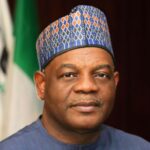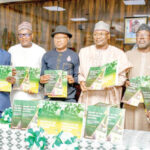Political parties are the major stakeholders in any democratic process, with usually one that is in power being called the ruling party and the other(s) called opposition party or parties.
Ever since the First Republic, Nigeria has been a multi- party country, which gives room for competition among parties.
- INEC relocates 1,112 polling units from shrines, others in Anambra
- 2 killed in police, robbers’ gun battle
The Independent National Electoral Commission (INEC) had during the tenure of Professor Attahiru Jega de-registered 28 political parties.
Similarly, in February, 2020, the commission announced the de-registration of 74 political parties.
The commission said the action followed the poor performance of the parties in the 2019 general elections and re-run elections.
The affected political parties took the case to court and the case was finally settled at the Supreme Court, which ruled in favour of INEC.
Forming a political party in Nigeria is an indisputable right of individuals, which has its roots under Section 40 of the Constitution of the Federal Republic of Nigeria 1999 (Amended).
Curiously, however, few days after the Supreme Court’s decision, the commission received 45 new applications from associations seeking to be registered as political parties. I have problem with that. In a situation where most of the political parties exist only in name and on paper without any genuine effort to cultivate voters and win elections or even have an identified office does not spell good for our democracy.
I personally do not think Nigeria needs so many political parties because when we check all the so-called parties they do not have defined ideologies or programmes to enable Nigerians make a good choice.
Thus, there is the need to amend the section of the constitution to reduce proliferation of unwanted or unnecessary political parties. Nigeria only needs strong political parties rather than the mushroom number of them prolonging our voting slips.
Alhassan A. Bala is an Abuja-based journalist.

 Join Daily Trust WhatsApp Community For Quick Access To News and Happenings Around You.
Join Daily Trust WhatsApp Community For Quick Access To News and Happenings Around You.


